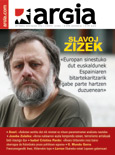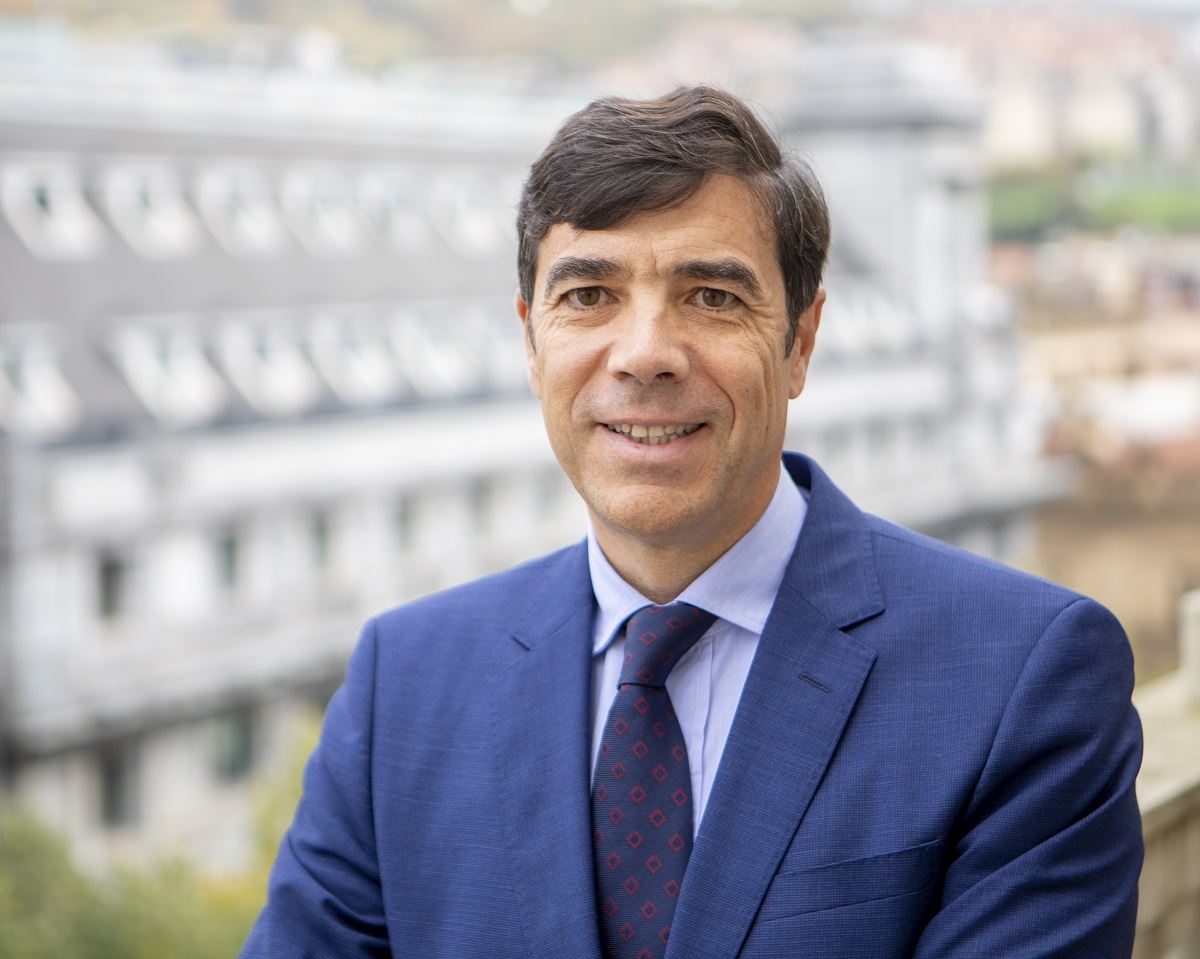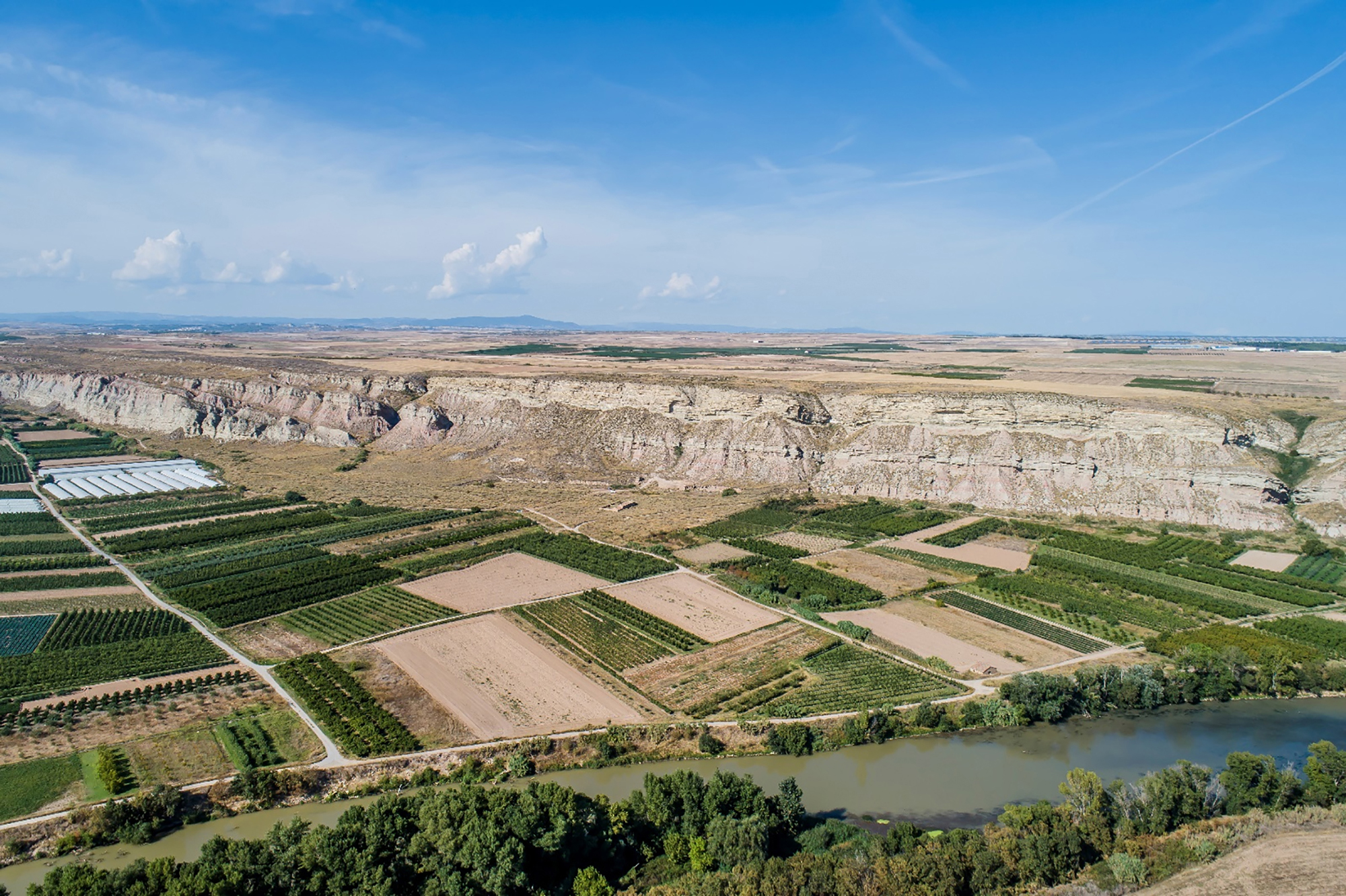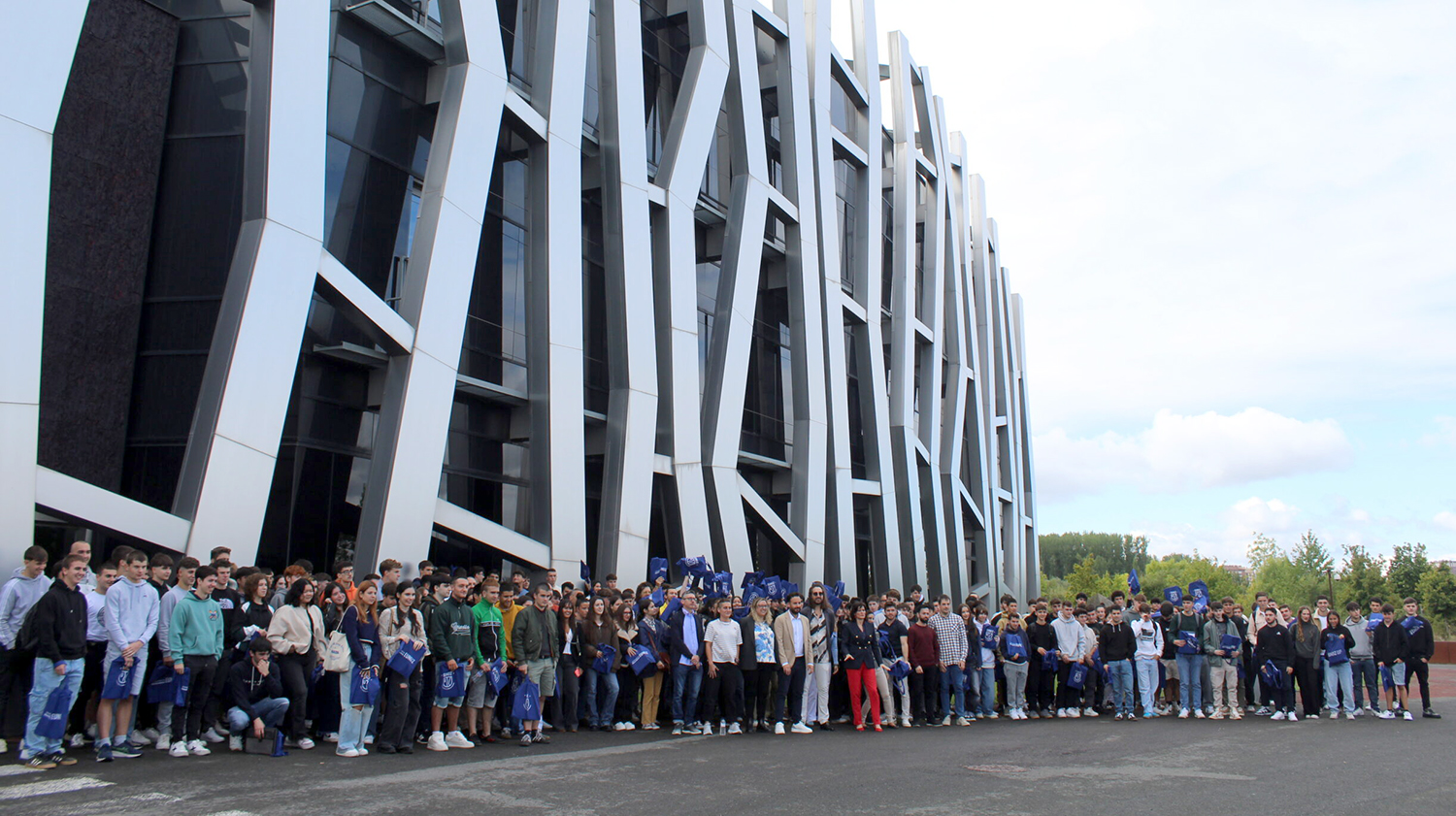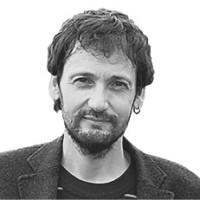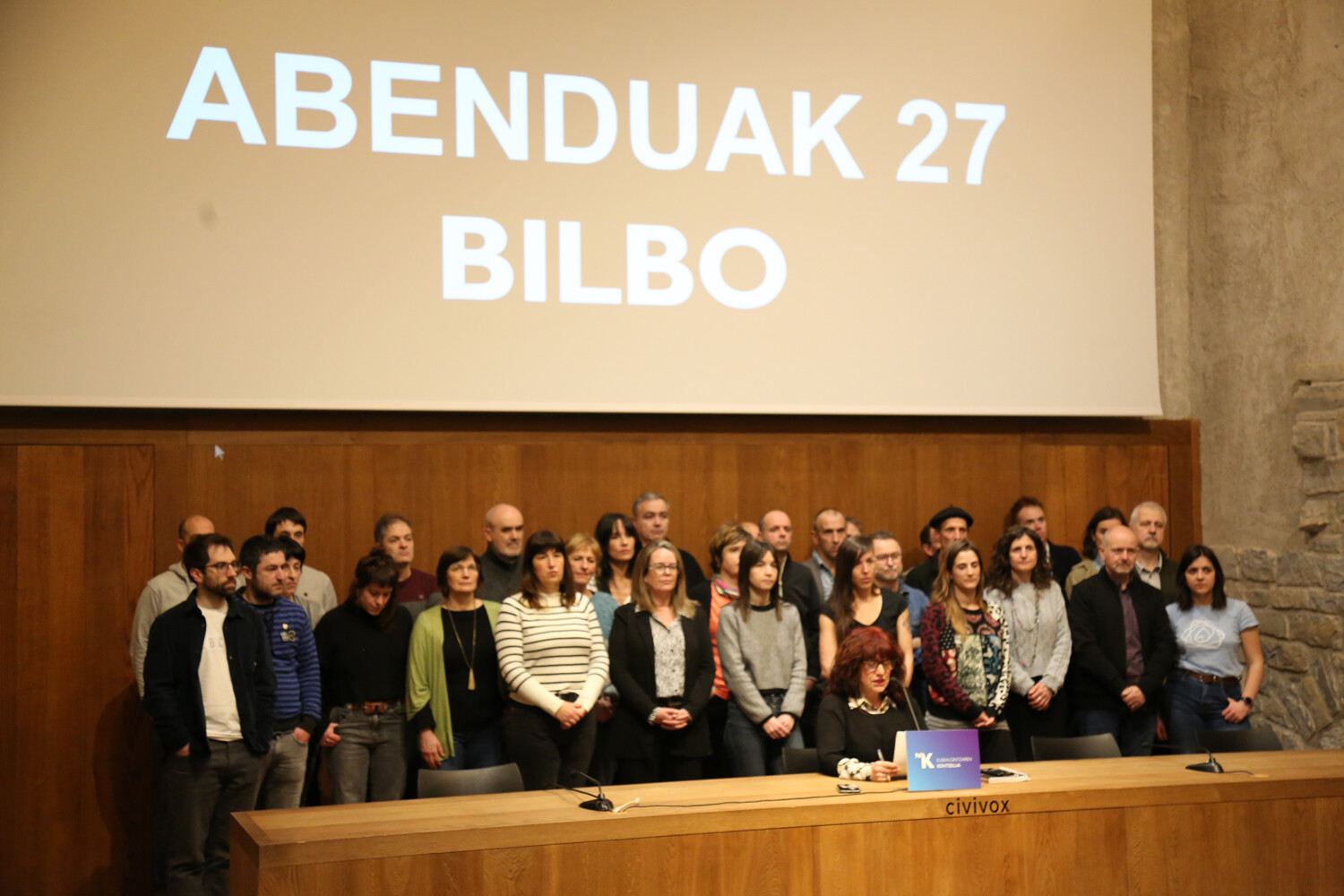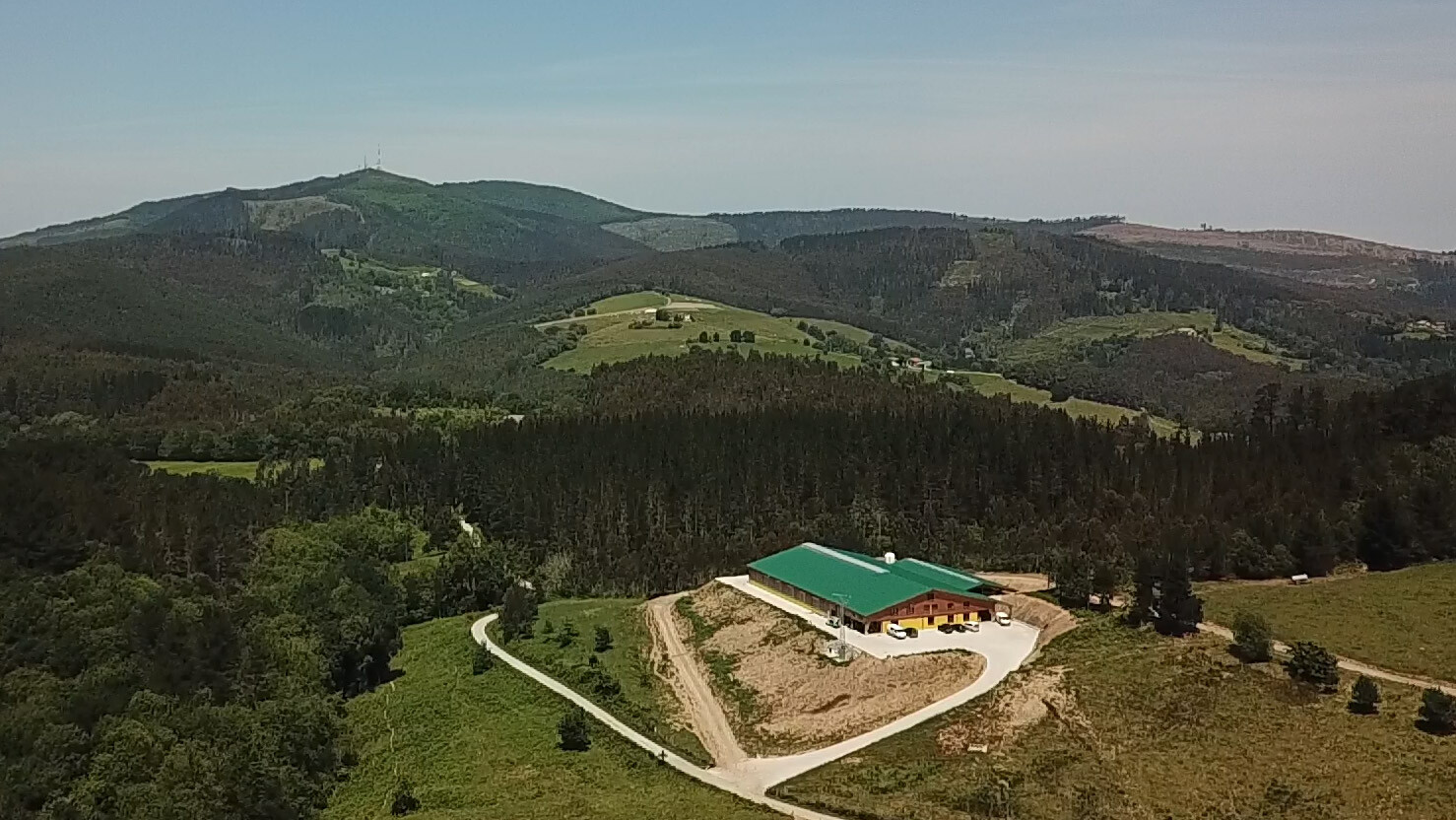"Everything seems to the counter-terrorist to be madness, criminality and taboo"
- Few conventions in the works of Joseba Zulaika. His research shows reflection and risks. Interpretation following the detailed analysis, with several authors accompanying them. It's about Terrorism. Last year he published The Self-fulfilling Prophecy (University of Chicago, 2009), a journey into the depths of counterterrorism discourse.
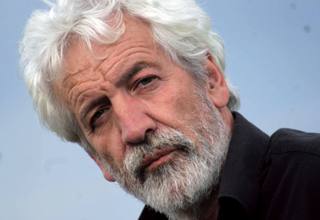
The book in English was called Terrorism. In Spanish, the word counter-terrorism appears in the title of Editorial Alberdania: Contraterrorism USA. Prophecy and Cheating...
Whatever the name, I criticize counterterrorism in this work. In essence, I say that counterterrorism increases terrorism. Just look at American history. The participants in the first attack on the World Trade Center [1993] had previously carried out counterterrorism work in Afghanistan for the U.S. military. In other words, terrorism was partly caused by counter-terrorism. Some counter-terrorism actions are difficult to understand without knowing their background... I also make a second criticism of counter-terrorism. I mean, why they let 9/11 happen, knowing that the attackers were here. The CIA knew some of these suicides were here, it had information, but it didn't notify the FBI... they say there's no communication between these agencies, but I think there's more to it than that.
What, for instance?
Akind of counter-terrorism culture, totally blind, that also prevents us from seeing what is exposed. Because it was very obvious what was coming on 9/11. If I tell you, I criticize this culture because, on the one hand, it increases terrorism itself and does not take the necessary measures, on the other hand, because of ignorance and prejudice, and because it makes the phenomenon itself taboo. In short, I criticize the discourse of counter-terrorism internally.
You have denounced the ignorance of those who work in counterterrorism. I wonder if I could. Ignorance, possessing so much data and information?
It is a systematic ignorance on the one hand and an unconscious ignorance on the other. Lacan says that we live in a passion for ignorance; that is, we live in an effort not to know things we don’t want to know. This is also evident behind the collapse of Wall Street: we didn’t see it before because we didn’t want to see it, but whoever wanted to see it had a place and a place to look. Our ignorance is interested, deliberate. We don’t want to see the data and the curiosities that come against our heads.
What is the most important message that your work entails?
That the counter-terrorism culture, either unconsciously or systematically, exacerbates terrorism. That counterterrorism has become a product of the intensification of terrorism. In addition to myself, other authors are questioning the appropriateness of counter-terrorism measures. There are several books, other than my own, that denounce the constant alarm, denounce the exaggeration, but with the presentation of the thesis in this crude form, I have explained myself, alone.
Is it not surprising that the American citizen accepts counterterrorism as such, joins it, blindly praises the work of the troops?
The culture of fear is behind it. There are many reasons for this culture. When it comes to disasters – natural and other disasters – there are reasons to fear, arguments to think that we are living in an apocalyptic moment. Fear must take concrete forms, and terrorism is one of them. I believe that this fear is deeply linked to the possibility of nuclear weapons. For example, what justified going against Saddam Hussein? The presumption that he might possess a nuclear weapon – which was simply an assumption – and that he could delegate that nuclear force to some terrorist group. People began to think about what a terrorist group, with a nuclear bomb in their hands, could do. Other guerrilla groups – whether IRA or ETA – don’t actually create fear. The fear comes from the possession of nuclear weapons by these groups. It is a parasitic fear associated with nuclear weapons. And with that, blindness. There is no discussion here of the extent to which nuclear weapons have been deployed in the world, but of the fact that certain countries have no control over them. “We own nuclear weapons, yes. Not our enemies.” When the number of countries possessing nuclear weapons could soon be twice as high today, the problem has become that instead of resolving it, terrorist groups could be possessed of nuclear weapons. Horrible blindness, displacement: the problem is that instead of having several nuclear warheads here and there in the world, terrorist groups also want to have them! They don’t want to know what the real problems are.
Counter-terrorism intensified after the attacks of 11 September. It was called War on Terror here. Afghanistan and Iraq, the target.
The war in Afghanistan was quite widely accepted here, believing that the attack came from there. Iraq, on the other hand, is a model of pre-emptive war, without justification, without the intervention of the right-wing forces of the administration – the “hawks”, it is said here – there is no way to understand it. The media was once again deceived on the pretext that Saddam Hussein possessed nuclear weapons. The war was built on lies, based on a false alarm. When they say that lie, or they say other lies in the same way, they are partly referring to malevolent intentions, and partly - more partly, in my opinion - they take advantage of the culture of fear. As we later learned, it was Saddam Hussein himself who unleashed the signs that he had nuclear weapons. He was trying to intimidate his enemies so they wouldn't attack him. It was a bluff, but the CIA and the other information agencies were unable to understand it properly. Here’s the mistake: not understanding the signs correctly. In my opinion, this is the best measure of counter-terrorism culture. This culture makes everything taboo, to the point of blinding everyone. The discourse is built on an irrational fear, and things are seen and understood differently than they are.
How to put an end to the counterterrorism discourse that exacerbates terrorism?
The key is to resolve the issue of nuclear weapons. If this is not resolved, the risk of terrorism will always persist. Countries with a nuclear bomb must comply with what they had promised at one time, that is, to dismantle their weapons stockpiles. The time has come, the time set. But since they don’t dissolve, that’s where the risk remains. Obama’s policy is hopeful at this point. We're gonna have to hold on to that. On the other hand, terrorism and violence stem from injustice and social inequalities. There are cultural and fundamentalist elements that also need to be resolved, but the idea that violence will disappear from the world is a rather injenuous thing. There will always be violence, of one kind or another. But such a systematic and strategic violence responds only to the current situation and is only linked to this nuclear world.
Assisted by Basque Violence. Metaphor and Sacrament (1988), Terror and Taboo (1996), now Terrorism (2009)... You have a central object of study, a line in your living anthropologist...
I worked on Itziar in the Basque Violence, and in those that have followed, in Terror and Taboo and Terrorism, I have analyzed the reality that I described there in a different way. I mean, in my new work, I've studied the speech itself, because it blinds us. I am interested in the myth that hides the discourse, the discourse against the truth, that blind discourse. I have felt the intellectual need to dismantle the discourse from the inside and, if I had to tell the truth, I have done it because I know the world of Itziar and the Basque Country.
What is the analysis of our state of violence?
I have looked at the Basque problem and realized that letting ourselves be included in this counter-terrorism discourse is absolutely counterproductive. “We’re not terrorists, people say that!” It's not enough. If everyone says it, the reality is, be true, be false. The fact that the Basque Country is framed within this terrorist discourse is totally contrary to our interests, totally counterproductive. Since the mission of this Basque Studies Centre is, among other things, to mediate intellectually between the local world and that of the Basque Country, I have tried to turn this discourse upside down, while at the same time expressing to ourselves that there is no greater injustice against the political and cultural interests of the Basque Country than for us to be involved in it. I studied the religious, political, unconscious roots of violence in Itziar, I understand and appreciate these roots, but politically and strategically it hurts me very much.
Linear A is a Minoan script used 4,800-4,500 years ago. Recently, in the famous Knossos Palace in Crete, a special ivory object has been discovered, which was probably used as a ceremonial scepter. The object has two inscriptions; one on the handle is shorter and, like most of... [+]
Londres, 1944. Dorothy izeneko emakume bati argazkiak atera zizkioten Waterloo zubian soldatze lanak egiten ari zela. Dorothyri buruz izena beste daturik ez daukagu, baina duela hamar urte arte hori ere ez genekien. Argazki sorta 2015ean topatu zuen Christine Wall... [+]
Gozamen aparta bezain deskribatzeko zaila dakar, norbaiten hitzak irakurri edo entzun ostean, zera pentsatzeak: “Horixe zen neu aurreko hartan azaltzen saiatu nintzena!”. Idazlea eta itzultzailea da María Reimóndez, eta galegoz aritzen da, hizkuntza... [+]
The writer Juan Bautista Bilbao Batxi worked in a boat and sent the chronicles of his travels to the newspaper Euzkadi. Thanks to this, we have interesting chronicles in Basque from around the world from the beginning of the 20th century. In June 1915, he made his stop in... [+]
Segurtasun falta dagoen irudipena handitu dela azaldu du Eustaten azken txostenak. Gurean, Trapagaranen, Segurtasuna orain, delinkuenteen aurka manifestaziora deitu dute herritar batzuek.
Bi izan dira sentsazio hori zabaltzeko arrazoiak. Batetik, udalak Udaltzaingoaren... [+]
Haurtzaroaren amaiera eleberri distopikoa idatzi zuen Arthur Clarkek, 1953. urtean: jolasteari utzi dion gizarte baten deskribapena. Eta ez al da bereziki haurtzaroa jolasteko garaia? Jolasteko, harritzeko, ikusmiratzeko eta galdera biziak egiteko unea. Ulertzeko tartea zabalik... [+]
There are those who subscribe to portals to sell their homes because they would like to buy a house. From time to time they even make appointments to see the houses, and I am sure that the seller knows that these people will not buy the house, not because they find it in the... [+]









